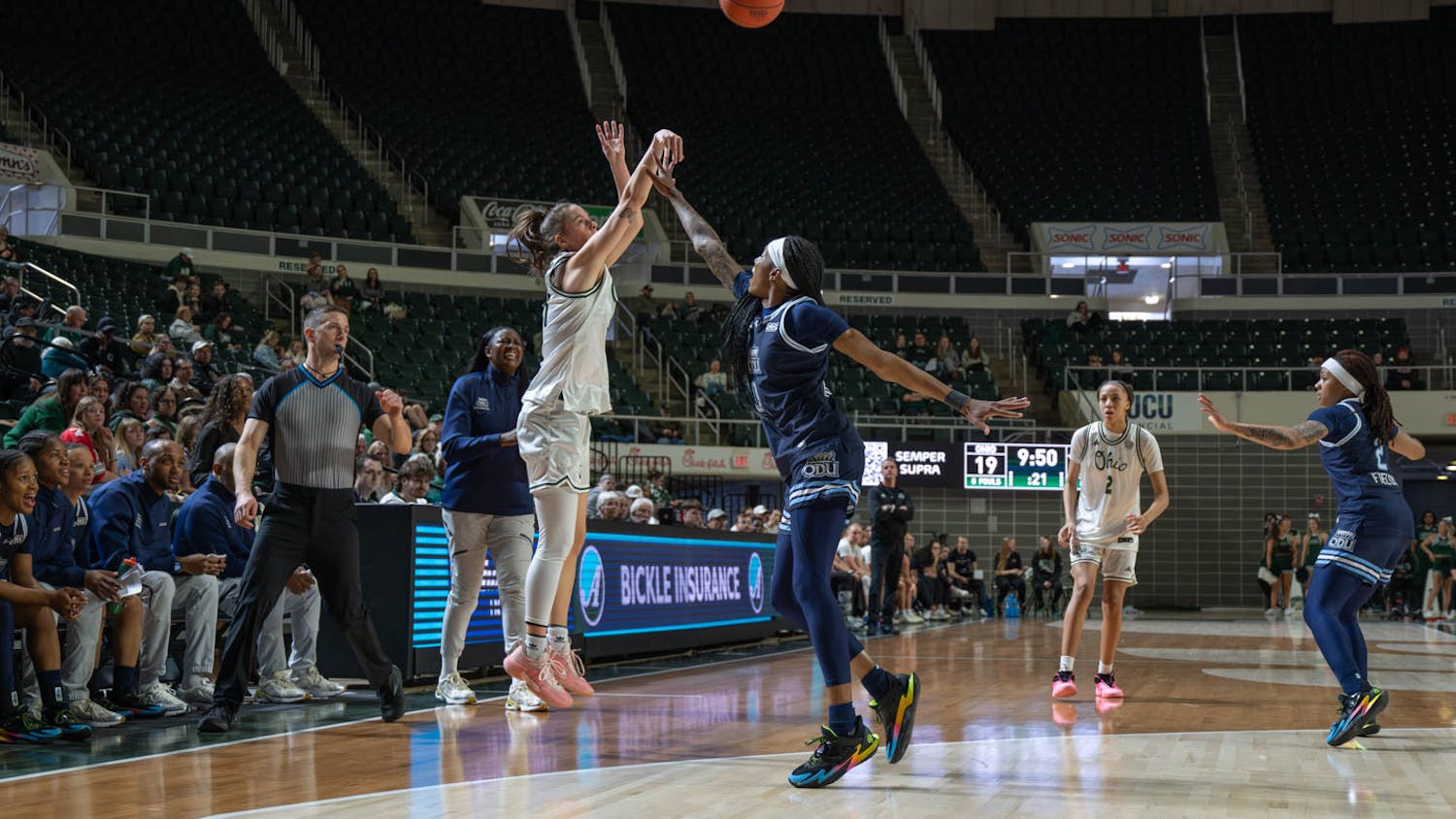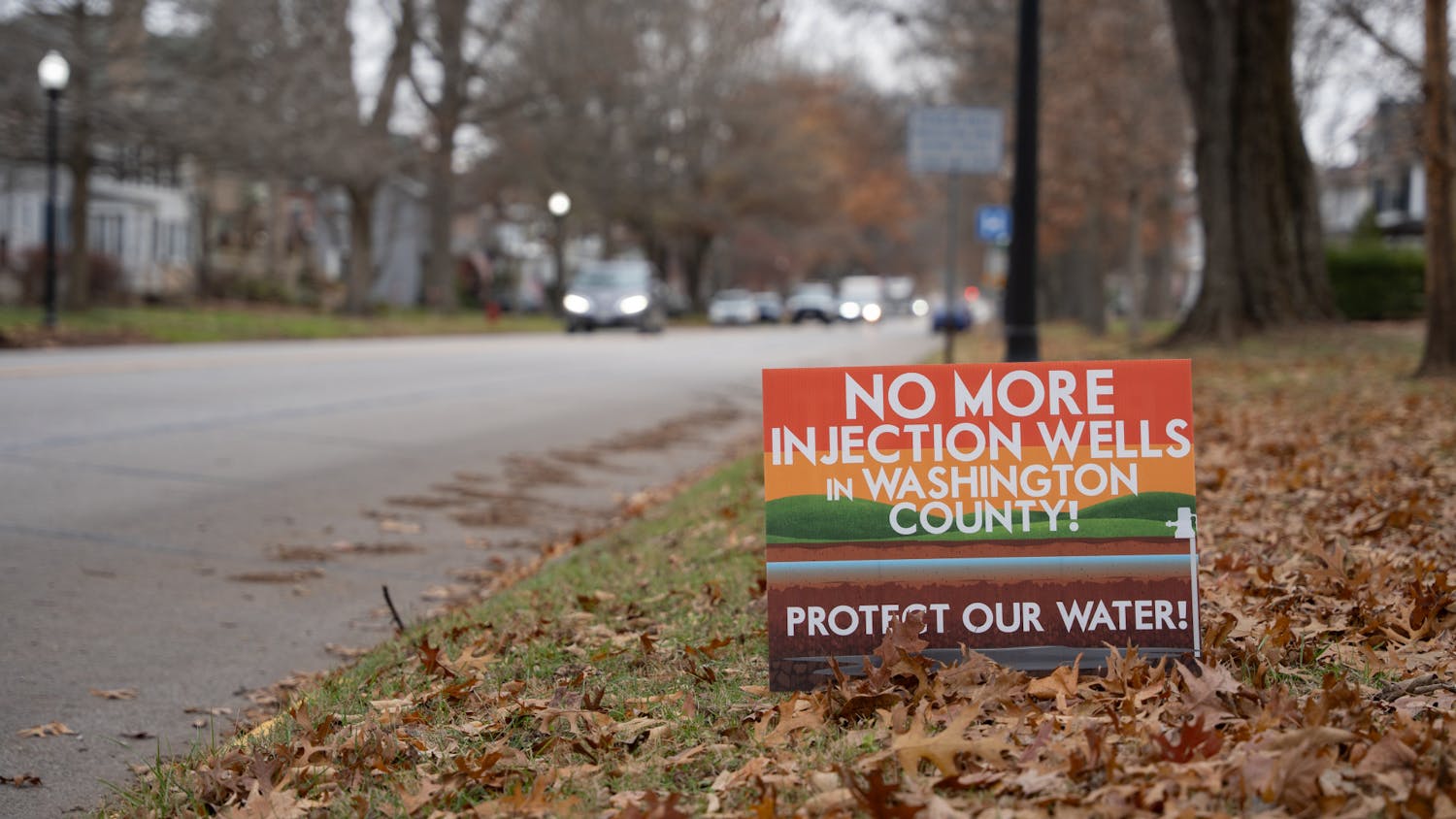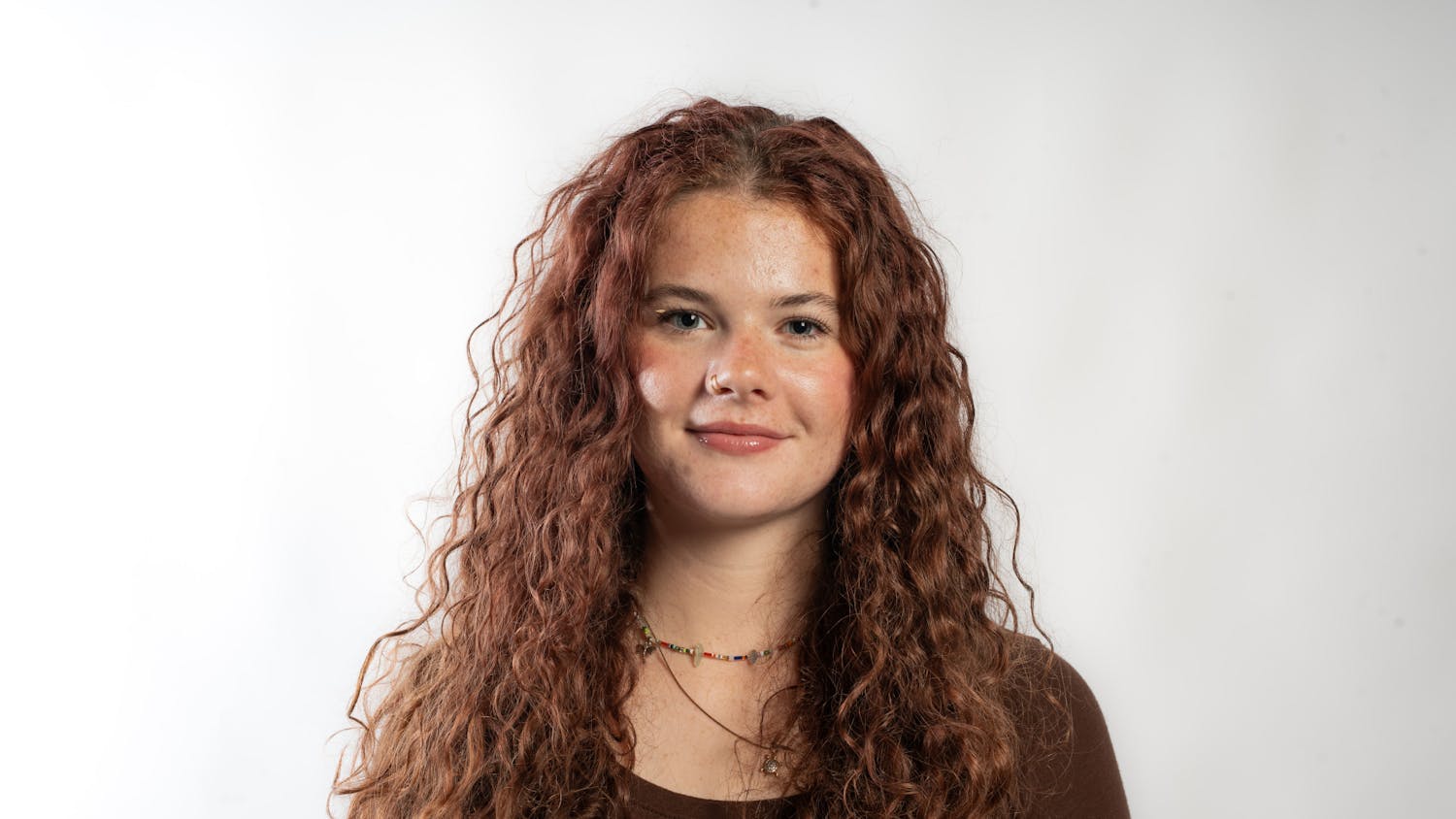Reserve Officer Training Corps, or ROTC, is a college program for students who are interested in different branches of military service.
The program at Ohio University offers two branches: Air Force and Army. The program typically consists of workouts three times a week, a class that all participants take and training in uniform-like military drills and active shooter training.
Anyone who wants to can join ROTC. However, contrary to popular belief, not every member of ROTC gets their college paid for. Those who do are in the program on scholarship and are required to serve in their respective branches of the military for four years after they graduate from college. Those who do not join ROTC just for staying in shape, discipline, friendships and the same appeal that any other campus organization would have.
Due to COVID-19, ROTC adapted by splitting up each group into two flights. For Air Force, the two flights are called Alpha and Bravo. The various members of ROTC lead the workouts alongside a cadre (an active duty or enlisted military) member.
Though the schedule is rigorous, with most of the workouts beginning at 6 a.m. sharp in Walter Fieldhouse or Ping Recreation Center, the students involved find they gain a lot of great life lessons and experiences from the program.
The Post sat down with Lanae Lang, a junior studying communication studies, a ROTC cadet on scholarship to serve in the Air Force after college and the public affairs head of ROTC, to talk about OU’s program, the different types of people in ROTC and common misconceptions about ROTC.
TP: Tell me about ROTC and what it stands for.
Lang: ROTC stands for Reserve Officer Training Corps. At Ohio University, there are two branches: we have Air Force and Army. But at other schools I know that they have a Navy ROTC. We don't currently have that at OU. But those are the three branches that I know of and have friends in. Personally, for me, I chose Air Force because Air Force is a really good choice if you want to have a family. It's a little bit more relaxed. Then the other branches, for example, if you had chosen to join Army or the Marines, that's a little bit more of an intense military experience. And for me, I didn't want that. I just wanted to be able to serve my country and also enjoy college life at the same time.
TP: Who can join ROTC?
Lang: As long as you don't have some preexisting medical condition like asthma, or you haven't gone to prison, pretty much anyone can join Air Force ROTC. You can win scholarships for it; for example, I have a full tuition scholarship, and I get a stipend each month to help pay for books and school expenses, and you can win those through ROTC. I personally applied for mine in high school. But even if you don't apply for a scholarship, you can still just join the program. Whether you just want to work out or you want an idea of what military life is like, anyone can join. After four years or three years, depending if you join as a freshman or sophomore, you get to commission into active duty Air Force, and it's a great opportunity because to commission as an officer in the Air Force right when you graduate from college is really amazing, and it sets you up really good for life.
TP: What’s the difference between joining ROTC and just enlisting?
Lang: The difference between joining ROTC and just enlisting in Air Force is that in ROTC, you're a student first. So, everyone stresses academics: keep your academics good, keep your GPA high, and then after the four years of college and ROTC training, we will then commission on active duty, potentially get deployed and all that. However, the difference is if you're enlisted, then you're a military member before you're a student. For example, you could still be attending college, but if you're enlisted, military comes first. They can technically pull you out of college at any time and deploy you if they needed to, and so that is a reason that I am really glad that I picked ROTC because I did want a college experience. I'm excited to serve, but I did want to get that college experience in first, so I have really enjoyed my time in ROTC.
TP: Tell me about a normal day in the life of a ROTC student.
Lang: A normal day, for example, a Monday or Wednesday would start out like this: we go to PT (physical therapy), and we do about an hour-long workout, and then right afterwards, I go to class. I also have an internship. I intern for a wedding and event planner in Chicago, so then after my classes, I typically work on some internship stuff. I take a nap — much needed since we have to wake up at 5 a.m. And then in the afternoons, I'll either go for a walk if it's warm out, I'll go for a drive, hang out with friends, go study, and then my friends and I like to grab dinner in the evenings or just hang out.
ROTC takes up a lot of time in the mornings, and you do have to do an extra class. But otherwise, it's the same as any other college student. It's really great because it allows us to be flexible. We are working towards a career in the Air Force, but we also get to enjoy being a college student.
TP: What’s something about ROTC that not everyone knows?
Lang: A fun fact that a lot of people don't know is that you can actually be in the guard and in ROTC, and I have a few friends that are in the guard and ROTC, and a reason that people would do this is if they didn't earn the Air Force ROTC scholarship but they still wanted to get college paid for. They could technically enlist, and then they would get their college paid for, and then also join ROTC. So, this is a little bit tough to explain, but they would enlist in the Air Force as an enlisted member, go to college, but then after college since they're in the ROTC program, they would switch over from enlisted to officer but they still get their college paid for. And I have a few friends that do that. And that's a good option if you're open to being deployed potentially, and you also want to stay in college though and earn your degree.
TP: What’s it like to be a woman in ROTC?
Lang: I have not felt too different as a woman in ROTC or in the military environment. Yes, we are a little bit outnumbered. For example, there's typically one woman for every four men. But, for me, I never felt too different. I was very lucky; I have great leaders, I have great wingmen and they never make me feel different or less than. It's a really great environment, and I'm really close with the girls that are in ROTC, and we're very excited for active duty in the Air Force.
TP: What do you want to do with ROTC?
Lang: I'm a contracted cadet. I applied for an Air Force ROTC scholarship in high school, so they're paying for my four years of college and giving me a stipend and incentives every month and semester. So, in return, right when I graduate from college, I'll commission active duty in the Air Force, and I’ll serve about four to six years. It depends on what job you get. But I would like to do public affairs. So, I would serve for four years, and what public affairs does is we would be dealing with the media and social media, maybe going on TV and speaking on behalf of the Air Force, we would be kind of giving the public eye an idea of what the Air Force is doing and portraying us in a positive light. And we would also have a big role in recruiting and trying to get people interested in joining the Air Force.
TP: Does going into the Air Force automatically mean you’re a pilot?
Lang: Typically when people think of the Air Force, they think of flying planes and pilots, but there's actually not as large of a percentage of pilots in the Air Force as people think. A lot of the jobs in the Air Force are very behind the scenes. For example, I would like to go into public affairs, and I have friends that want to be engineers. I have friends that want to go into intelligence or logistics or maybe something with computers and cyberspace and stuff like that. There's a ton of behind-the-scenes jobs. For example, mechanics is a very big job in the Air Force, and it's very important because of all the equipment that we use like for the planes. People think of planes and flying when they think of the Air Force, but it's so much more than that.
TP: What are some common misconceptions about ROTC or things you feel you have to explain to a lot of people that are not true?
Lang: A lot of people just don't know what ROTC does. They might think that it's goofy or weird. I've had friends tease me for being in it just because they don't really understand what the program does and what it's for. The whole base of the program is basically just to prepare you to be a great leader in the Air Force while still allowing you to pursue your degree. So, in my opinion, it's the best of both worlds because you get your degree, but you also get to serve right after college. You have a job lined up, you stay fit because we’re working out all the time, you make lifelong friends, you get to meet people who have similar values as you. It's really great. I obviously enjoy my other curriculars that I do; for example, I'm in a sorority, I'm in a professional fraternity and I'm in the Snow Cats, but I really would not be enjoying my college experience as much if I didn't have ROTC. I really feel like it keeps me grounded, and it keeps my priorities straight and honestly, without it, I probably would not be as motivated to do as well in school because they really do hold us to a high standard.
To learn more about ROTC students, watch The Post’s “A Day in the Life of an ROTC student” video.






